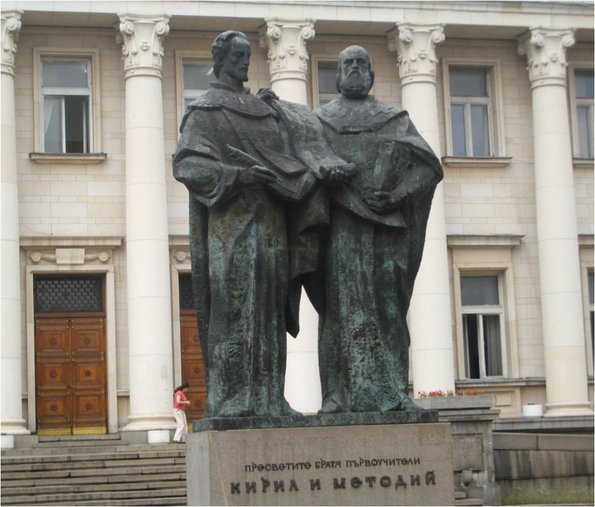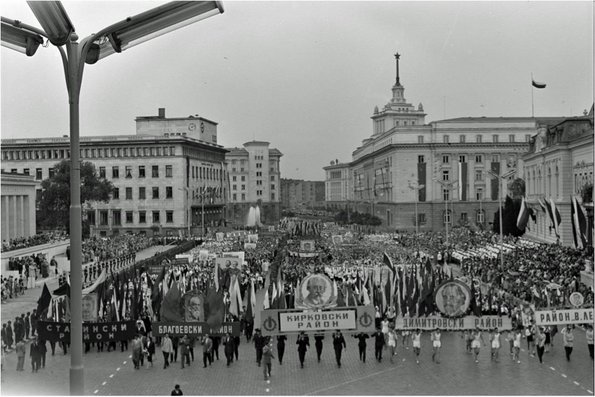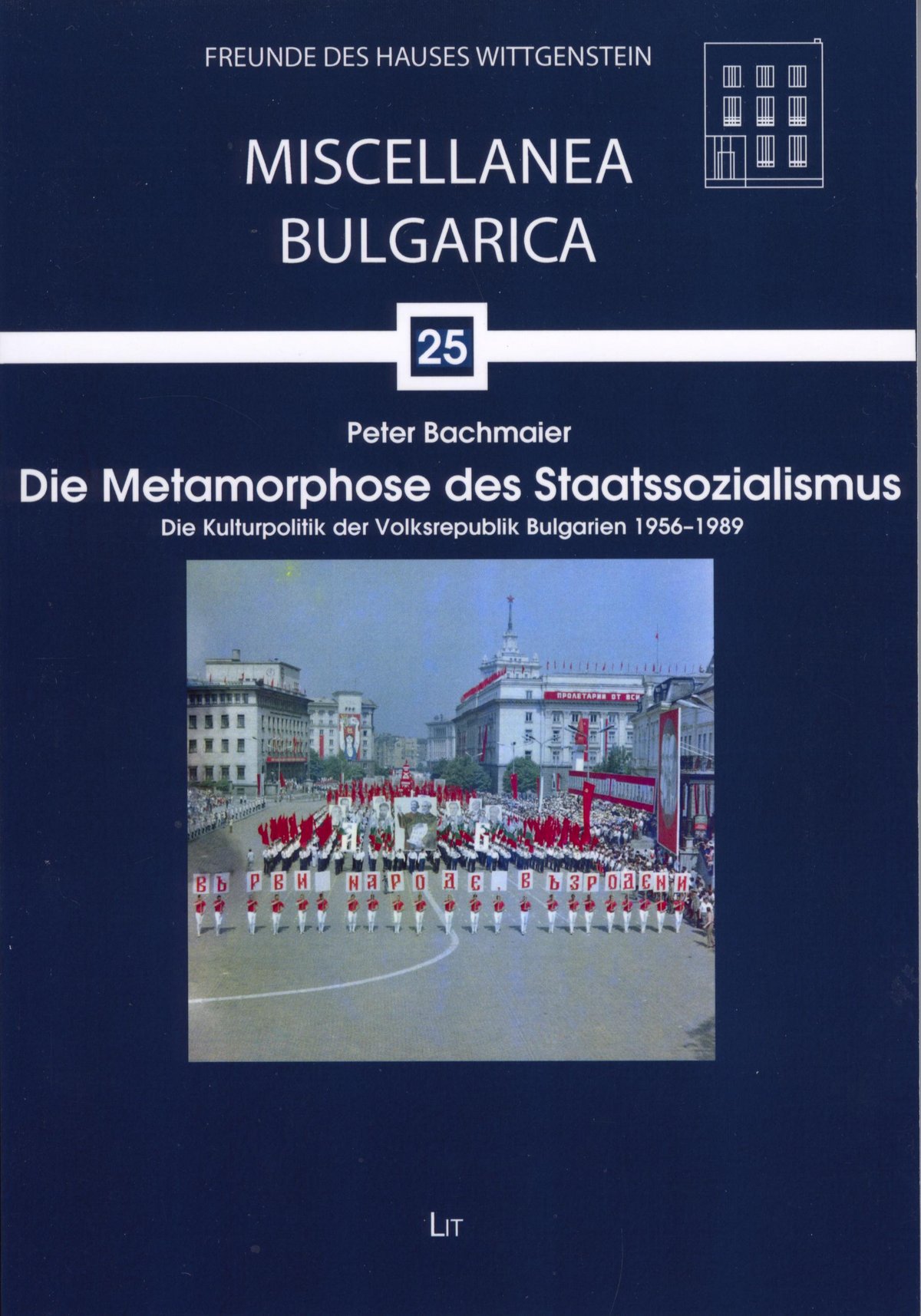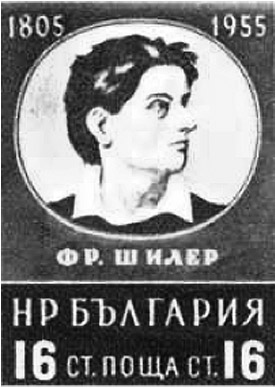The metamorphosis of state socialism
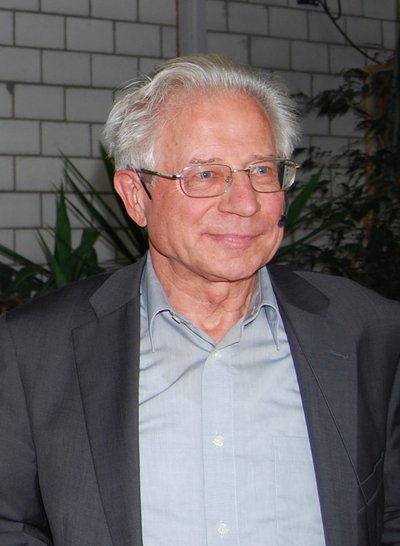
(picture ma)
Most articles which were published on the occasion of the 30th anniversary of the dissolution of the “Eastern bloc” praised the “transition from dictatorship to democracy”. On 19 September 2019 the European Parliament passed a resolution in which all member states were urged, in reference to the basic principles of the European Union, to declare 23 August, the day when the non-aggression pact had been signed by the German Reich and the Soviet Union in 1939, as a European day of remembrance to honour the victims of totalitarian regimes. The resolution specifically mentioned those post-socialist states in the East of the EU where “to this day symbols of totalitarian regimes” were on public display and “monuments and places of commemoration” could be found which “idolised” such regimes.
However, the period of state socialism should not only be judged from a Cold War Western perspective. The following article about state socialism in Bulgaria – a summary of my work in Bulgarian and Russian archives over many years – argues that the Peoples’republic of Bulgaria (PRB) is not adequately described by the term “totalitarianism”.
* Professor Dr Peter Bachmaier, historian and politologist, member and chairperson of the Austrian Institue of East and South-East European Studies in Vienna (1972–2005); lecturer at the university of Vienna; vice president of the Bulgarian research institute in Austria (1999); honorary doctor of the university of Sofia Dr h. c. (2008).
Publication: Bachmaier, Peter. Die Metamorphose des Staatssozialismus. Die Kulturpolitik der Volksrepublik Bulgarien 1956–1989, Lit Verlag, 311 p., Vienna 2019 (edition Miscellanea Bulgarica, association “Friends of the House of Wittgenstein”, volume 25)
The plenary of April 1956 and
the return of traditional culture
The first phase of post – World War II history in Bulgaria began when the Communist party seized power and established a repressive Soviet-style regime. Executions and show trials ocurred, penal camps were established, all cultural activities were taken over by the state and were subject to censorship while Marxism-Leninism was made official state ideology. However, in the period from 1956–1989 a liberalisation of daily life within the framework of state socialism was achieved. After the plenary of April 1956 and especially after Valko Čhervenkov and his followers had lost their influence at the VIII. party conference of the BCP (Bulgarian Communist Party) in 1962, a certain internal change or metamorphosis of the system was detectable. The structures of the authoritarian systems and the BCP’s political monopoly position were maintained, but at the same time traditional ethics and elements of a “moral state” appeared. German idealism played a great role in this process, similar to its strong influence during the national renaissance and liberation movement in the 19th century. Herder, Schiller, Kant, Hegel, Humboldt among others were well-known and translated by the intellectuals, many of whom had studied in Vienna, Munich and Leipzig. At the 150th anniversary of his death, Friedrich Schiller was honoured in May 1955 with a ceremony at the national theatre in Sofia and a performance of “Don Carlos” in May 1955, organised by the ministry of culture and the national author’s association. At this ceremony, which was attended by prime minister Anton Jugov and the members of the BCP politbureau, the poet Valeri Petrov remarked in his address: “Schiller has always been with us. He was the standard bearer of the belief in humanity and human dignity.” In commemoration of Schiller’s 200th birthday on 10 November 1959 lectures were held, and articles published in the journal “Literature front”. The philosophy of Hegel had great influence on Bulgarian intellectual life and on Marxism in general. His major works were translated in the 1960s by Genčo Dončev who wrote in the epilogue of his translation of “Phenomenology of spirit”: “The philosophy of Hegel is the philosophy of Man in freedom.” (1969)
The state censorship agency Glavlit was abolished in 1956, sons and daughters of the “Bourgeoisie” were allowed to study at the universities again in 1958 and the “Bourgeoisie” professors and scientists rehabilitated. First secretary of the central committee of the BCP Todor Zhivkov, succeeded in creating a “symbiosis” with the cultural elite in the 1960s and summon their support for the state rule. Since then there had been no dissidents in Bulgaria, no samisdat and no “silenced poets”. The detention camp Loveč was closed in 1962 and until the end of state socialism there were no uprisings and no invasions by foreign troops.
A programme referred to as “cultural revolution” meant that illiteracy (24% of the population initially) was to be overcome with authoritarian measures in a short period of time, the education level of the people be increased and society modernised as required for industrialisation. Culture was held in high regard and after 20 years there were 2,400 performance halls (itališta), 42 theatres and opera houses, hundreds of music schools, worldclass singers like Nicolai Ghiaurov and Boris Christoff and state picture galleries in every county. This cultural revival of Bulgaria in the 1960s and 1970s and the ideological orientation in cultural affairs was an independent initiative of the Bulgarian leadership which had not been directed by Moscow.
The extended family with the grandparents was regarded as the pivotal nucleus of society. But the rights of the nation belonged to the moral state as well. In an important speech in April 1963 Todor Zhivkov denounced the “nihilism” of Western culture and the “Western way of life” as an idol of the youth. The goast was to be the preservation of national culture, rooted in literay and philosophical classics as the foundation of morality.
The influence of German Idealism
The Bulgarian philosopher Nikolaj Iribadžakov characterised ethics in the People’s Republic of Bulgaria as follows: “The ideology was materialistic, but ethics was idealistic. The Komsomol (Communist youth organisation) organised work brigades, volunteer activities, emphasised companionship, solidarity and the family!” (Iribadžakov, Razvitoto socialisticesko obštestvo [The developed socialist society], Sofia 1972).
The basic principles of human community were dedicated to the common good.
The education system developed fast. Pupils were encouraged to honour discipline and patriotism. The traditions of the Bulgarian people and their great writers were observed. In the 1960s language-oriented secondary schools specialising in High Dutch1, French and English were established. A classical secondary school for Latin, Ancient Greek and Old Church Slavonic2 was opened in Sofia in 1977.
In 1968 the virtues of the youth as defined by the codex of the Communist youth organisation (Komsomol) read as follows: “I preserve the language, the traditions and customs of my people. I love Socialist Bulgaria, my greatest treasure. I will educate myself towards modesty, honesty and justice.” (Statute of the Dimitrov Youth Association, 12 January 1968)
In May 1980 the I. teachers’ congress issued a “Charta of the Bulgarian teachers” wich stated: “As a spirited personality, committed and focussed, the teacher was characterised by his dedication to national renaissance, his work and his apostle-like love for the youth of his fatherland. The Bulgarian teacher was enthusiastic about the high ethical and democratic standards, the foundation and pillars of the century-old Bulgarian school.”
At the beginning the Orthodox Church was oppressed but in the 1960 it was declared “autonomous”. “Patriotic service” became their main theme and the historians emphasised the role of the church for national history. In the 1970s no more repressions against members of the clergy occurred and churches and monasteries were renovated.
When patriarch Aleksij visited Bulgaria in May 1962 to participate in the Bulgarian festival of Slavonic culture he declared: “At the dawn of life of the Russian people god sent us the two holy brothers Cyril and Methodius, and they became our spiritual fathers. The unity of spirit and language was preserved because the Slavonic language became the language of our creed and our Church. Orthodox Bulgarian helped Russia to rid itself of the dark age of paganism and after many centuries the sons of Russia liberated Bulgaria form the yoke of the non-Christian oppressors.
The light from the North never waned for the Bulgarian people throughout five centuries, despite many obstacles the relationship between our peoples was never interrupted. The Bulgarian people was supported by the Russian people, its Church and the Czars – spiritually, religiously and morally.”
Bulgaria as a “showcase of socialism”
In 1966 the ninth party conference of the BCP ruled on a “New system to organise the national economy” which included “Self-management of the factories”. On the I. Congess of Bulgarian culture in May 1967 the “state-societal principle” was introduced in the cultural management, which meant that cultural bodies were to elect their own leadership. This included the leadership of the newly established committee of culture, which was more or less a ministry.
During the Prague spring, 20-22 May 1968, the First Congress of Bulgarian authors convened with the aim to challenge the Fourth Congress of the Czechoslovak Union of Writers in June 1967. At this congress Georgi Džagarov, the president of the writers’ association, took a pledge of allegiance with the BCP. However, Czech writer Petr Půjman was allowed to make a critical speech on behalf of the Czechoslovak authors which was regarded as “heretical”.
The Ninth World Youth Festival in Sofia was supposed to present Bulgaria as a “showcase of socialism” in July and August 1968. Among the 20,000 youths who participated there were 8,000 from Western countries, including many groups of the ‘68 New Left movement, who criticised state socialism and staged some spectacular performances. They were allowed to express their ideas on a “free stage” at the university of Sofia which sparked heated discussions.
The Department of Ideology at the Central Committee of the BCP paid close attention to the tendencies of sociological theories in the West. The West was accused to muddle the essence of capitalism by referring to modern societies as “integrated society”, “common industrialised society” or “open society”.
The same accusations were made against the “revisionists” who claimed there were no longer any antagonistic controversies in modern societies. Criticism was aimed at the “Frankfurt school” in particular which was accused to play an “antagonising role in the student’s movement of the West”. Marcuse was regarded to write in a neopositivist, anti-dialectical and ahistorical style. The same verdict applied to Karl Poppers’ critical rationalism who regarded Plato and Marx as “totalitarian” in his main book “The Open Society and its enemies” (1945). The “International Summer School of Philosophy”, founded by the socialist countries in Varna, 1969, tried to prove contemporary Western philosophy wrong at their conferences.
The ideology of the BCP was “national-communist” and fought against “modernism” of Western culture as exemplified by abstract art, experimental literature, atonal music and cosmopolitism. However, due to increasing influence of the West and Gorbachev’s perestroika movement in the Soviet Union, the youth became more focussed on consumerism during the 1980s.
The “Golden Age” in the seventies
In the Seventies the concept of socialist realism was expanded under the name of “committed realism”; literature, art and music were not to be propaganda art, but were to be based on beauty with the reference to Hegel’s philosophy. The cultural policy of Lyudmila Zhivkova, chairman of the Committee for Culture, was basically no longer a variant of Soviet culture, but an independent tendency.
In the seventies, important international events were organised, such as the World Congress of Philosophy in 1973, the “Triennial of Committed Realist Art” from 1974, and from 1977 international writers’ congresses with the participation of well-known Western writers. In 1975 Lyudmila Zhivkova invited the well-known Moscow avant-garde theatre “By Taganka” with the Soviet bard Vladimir Vysotsky to Bulgaria.
In 1976, the only Bulgarian cultural institute in the West was established in Vienna in the Wittgenstein House, which expressly refused to engage in political propaganda and to present state art. It was also a very fruitful period of cultural cooperation between Austria and Bulgaria.
Lyudmila Zhivkova was very interested in metaphysics, she was not an atheist. In the inaugural speech of the “Banner of Peace” assembly in 1979, she called on the youth to rise above purely material values. At a conference in December 1980, she gave a speech on aesthetic education, in which she made no mention of Lenin’s teaching of the two cultures, but spoke of general human criteria such as “unity, creativity and beauty”. This culture was a national culture, open to world culture, as especially shown by the anniversary “1,300 years Bulgaria”, celebrated from 1978 to 1981. This period was called the new “Golden Age” after the one under Csar Simeon in the 10th century.
The Bulgarian ethnic model
and the “unity of the people”
The X. party congress of the BCP of 1971 adopted a new constitution with the aim of establishing a “unified socialist nation”, but in reality the “parallel society” with the Turkish ethnic group remained. The Bulgarian government therefore changed its policy towards the Turkish population, especially after Turkey’s occupation of the north of the island of Cyprus in 1974.
At the end of 1984 the decision was taken to bulgarinise the names of all Turks and Muslims and to abolish the teaching of the Turkish language in schools, Turkish newspapers and radio broadcasts. The activities of mosques and Muslim organisations were severely restricted. The decision was made by Todor Zhivkov himself, who took responsibility for it on behalf of the state. The resolution named the Turkish Muslims as Bulgarians who had been Islamised during the period of Turkish rule. This policy was therefore called the “process of national rebirth”.
In August 1987, Turkish Prime Minister Turgut Özal threatened Bulgaria on the issue of Bulgarian Muslims by announcing a solution based on the Cyprus model. The “Voice of Turkey” set up a new transmitter on the border with Bulgaria. The organisations of the Bulgarian opposition opposed the “rebirth process” soon after its foundation in 1988 and especially at the time of the protests of the Bulgarian Turks in May 1989.
In spring 1989 the political situation in the world changed. The socialist system, with the Soviet Union at the head, fell into a severe crisis. The problem with Turkish Muslims in Bulgaria was welcomed by the Western countries and Turkey. Finally, in May 1989, mass riots were organised by Muslims against the “rebirth process”. The Bulgarian authorities allowed Muslims to leave for Turkey, and in May and June 1989 some 360,000 Bulgarian Turks and Muslims left the country. In the following months, however, half of the emigrants returned to Bulgaria.
At the height of the “Great Excursion”, the migration movement of Bulgarian Turks and the CSCE Paris Conference of Experts on the Human Dimension, which put pressure on Bulgaria, Todor Zhivkov gave a television address on 29 May 1989, in which he explained:
“It is a historical fact that the very victory of the socialist revolution and our socialist state freed the Muslim population from the ignorance, misery and lawlessness to which the Ottoman Empire had condemned them […]. Illiteracy has been eliminated in this region. About 500 young people from this region started studying at universities every year. The number of teachers there today is greater than that of students before the revolution.”
The role of the Soviet Union in Bulgaria
The Soviet Union played an essential role in Bulgaria through the joint conferences of the communist parties, the Warsaw Pact and the Council for Mutual Economic Assistance, but there were no Soviet advisors in the Committee for Culture of the VRB. Cultural policy was an own separate matter for Bulgaria.
In the second half of the 1980s, Bulgaria played a prominent role in Soviet intellectual life, despite the tense relations between Todor Zhivkov and Mikhail Gorbachev. In February 1988 a Bulgarian Cultural Centre, the first of a foreign state in the Soviet Union, was established in Moscow. The Cultural Centre aims to carry out permanent Bulgarian cultural activities in the RSFSR, Ukraine and Belarus.
On 24 May 1988, on the occasion of the Cyril and Methodius Feast, which in 1988 coincided with the anniversary “1000 years since the baptism of Russia”, an All-Union Celebration of Slavic Scripture was organised in Moscow in honour of the Slavic apostles. On 24 May 1989 such a ceremony was organised in Kiev and in 1990 in Minsk, the capital of Belarus, each time with the participation of a prominent Bulgarian delegation.
During the period of perestroika, the VRB got into difficulties because Gorbachev abolished Soviet privileges for the Bulgarian economy and ultimately wanted to eliminate the political monopoly of the BCP. Todor Zhivkov agreed with privatisation, decentralisation and self-government, for example of the cultural associations, but he wanted to maintain the power of the BCP, just like the party in China, where he had a meeting with Deng Hsiao Ping in 1988.
The period of the Perestroika (1986 – 1989) included the last crisis of the regime which was not least a spiritual crisis. At the 1986 party conference, the secretary of the youth association criticised the consumerism of youth, the Western influence of fashion and art and the growth of “informal” youth groups. At the very end, at the late 1988 and in 1989, the cultural associations and the University of Sofia joined the opposition. Todor Zhivkov was not overthrown by a popular uprising but by a coup d’etat because Gorbachev had withdrawn his support. The first oppositional mass rally took place one week after the fall of Todor Zhivkov on 17 November 1989 and was arranged by the new government. The Republic of Bulgaria is today seen as the result of a radical break with the communist past.
The change of 1989: from East to West
The economical reform programme, which the American economists Richard Rahn and Ronald Utt presented in October 1990 on behalf of the new Bulgarian government of Andrey Lukanov was the basis for the neoliberal project that was implemented in Bulgaria. From 1991 on, culture was also de-ideologised, decentralised and economised. The state’s monopoly on education was abolished and state ideology in this field was eliminated.
In a report on Bulgaria, the Council of the European Union criticised the “uniform perspective on culture”, in which modern artistic movements could find no room, and also the alignment with Russia. The pursuit of art should be valued according to its economic result. This also required new means of sponsorship and marketing. The 1991 Culture Act was the condition for Bulgaria’s accession to the European Union’s culture programmes.
The Bulgarian National Television (BNT) was converted into an independent organisation in 1992. In 2000, the private television station BTV was founded, and was acquired by Rupert Murdoch from the media group News Corporation. After 1989, newspapers and magazines mostly were assigned to foreign ownership, especially the German WAZ media Group.
The Kostov government also enacted a new law on national education in 1998, which was market-oriented with the support of the IMF and the World Bank. In addition to the state schools, a sector with privately owned schools that charged tuition or tuition fees and thereby better paid teachers, as well as foreign schools maintained by Western organisations, emerged.
The “Open Society” foundation of the American billionaire and philanthropist of Hungarian descent George Soros played an eminent role in the change of values among the Bulgarian people. The national foundation “Open Society Foundation Sofia” was established on 5 April 1990 with the explicit endorsement of the new Bulgarian government.
Since its accession to the EU in 2007, Bulgaria restructured its cultural policy according to the European model and actively participated in all relevant EU programmes.
Bulgarian legislation on audiovisual and intellectual property has been fully harmonised with the EU and its “Television without Frontiers” Directive (1989). The EU Treaty with Bulgaria of 2007 defines the area of “Education and Vocational Training”, mainly through the development of the European dimension in higher education in accordance with the Bologna Declaration of 1999 and the development of a system of permanent education and training, in line with the objectives of the Lisbon Strategy of 2000.
The reforms after 1989 and especially after 1997 have left deep traces in Bulgarian culture. The state largely withdrew from its responsibility for culture without creating alternative sources of finance. Cultural policy experienced drastic cutbacks and dismissals. Opera houses, philharmonic halls and other musical institutions were merged or closed within a short time. The system of national art schools and former music grammar schools was also reduced.
The remaining cultural institutions can only pay low salaries, but can no longer carry out new projects and productions. In the budget for 2020, 417 million lewa are planned for education and science. The total budget for culture is 126 million lewa, including 13.6 million lewa for cultural heritage and 108 million lewa for “contemporary art”. The share of culture in GDP decreased from 1.1% (1990) to 0.6% in 2019.
However, culture continues to play an important role. A great interest in its own past developed. Finally, despite the difficult economic situation, the state cultural institutions – the theatres, opera houses, concert halls, art galleries and film studios – were still able to produce significant artistic achievements and gain international recognition for them.
Bulgaria today needs a new cultural orientation and a restoration of the role of the state. In the concepts of the last governments the following have already been mentioned as the most important goals and principles: the transformation of culture into a national priority in order to preserve the unity of the nation, the preservation of traditional values and the strengthening of the role of Bulgarian culture in the European context. It is to be hoped that this concept will actually determine the line of Bulgarian cultural policy in the future. •
